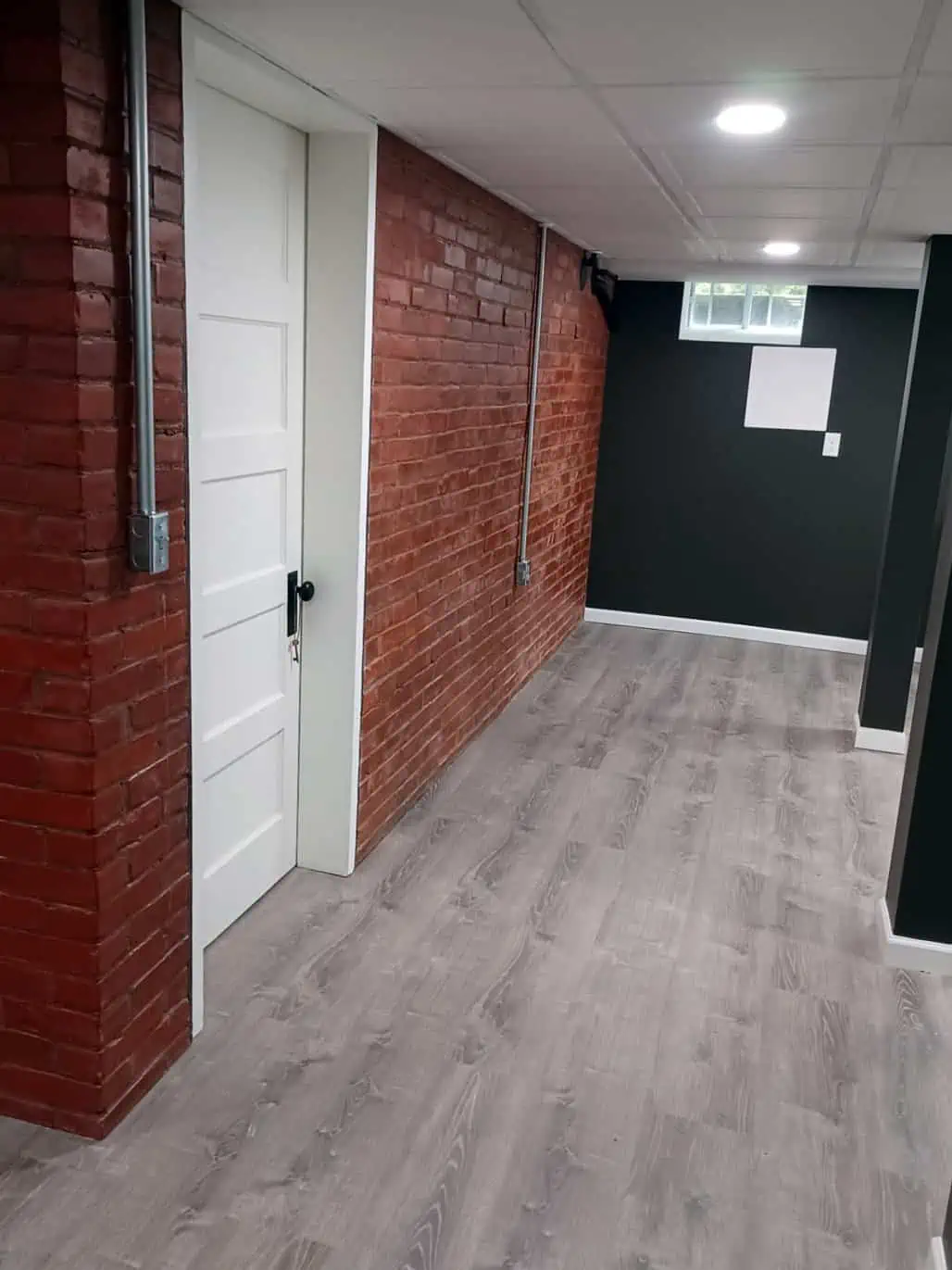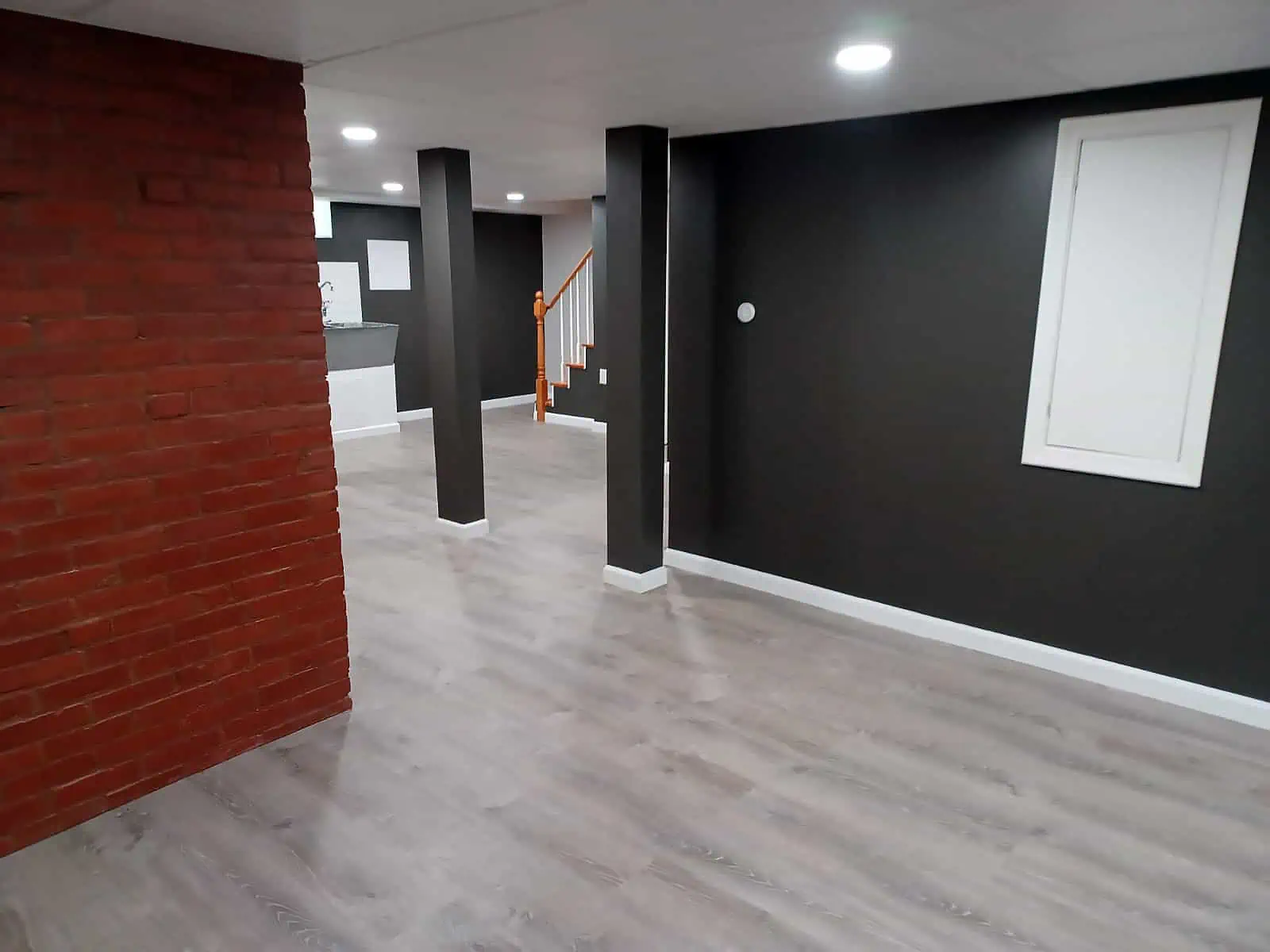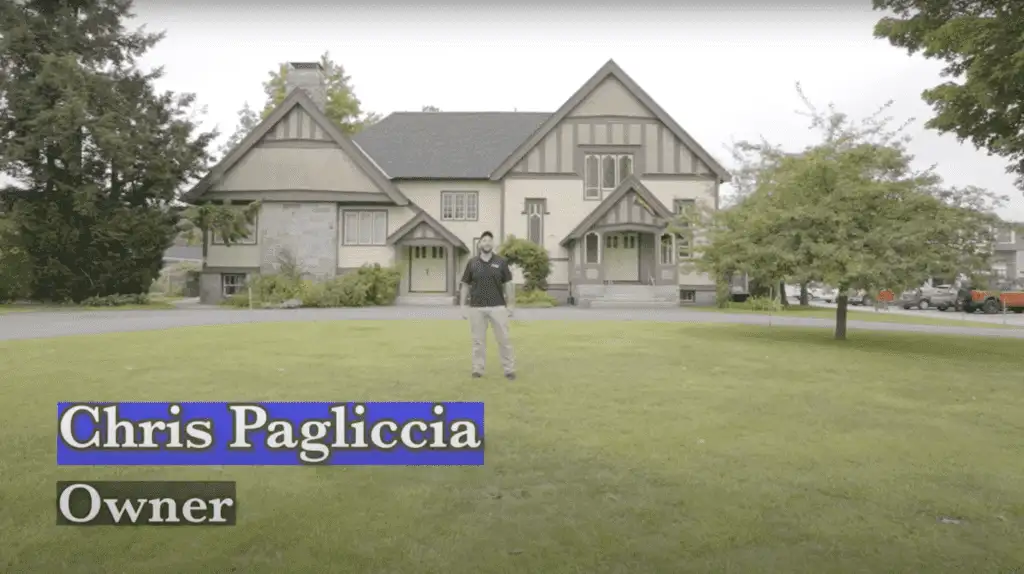Basement Finishing New Castle NH
Basement finishing has become a popular home improvement project for homeowners in New Castle, NH. With its ability to transform unused or underutilized spaces into functional living areas, a finished basement adds both value and versatility to a home. Whether you’re looking to add a home office, a family entertainment area, or a guest suite, a finished basement can meet those needs.
Real People - Real Great Results
Crawl Space Video Playlist
Why Finish Your Basement?
Let’s face it: an unfinished basement is like a blank canvas that’s gathering dust. Most basements end up as glorified storage lockers full of random boxes, mismatched furniture, and things you’ve been meaning to purge for years. By finishing your basement, you’re not just clearing clutter — you’re reclaiming significant square footage that you already own.
Think about it: instead of heading out to a packed gym, you could have a workout room just steps away. Or what about a cozy movie night in your own home theater, instead of shelling out $15 per ticket? Finishing your basement unlocks a world of possibilities, all tailored to how you actually live.
There’s also the ROI to factor in. A well-finished basement doesn’t just make your home more livable — it makes it more valuable. In New Castle’s competitive housing market, an extra guest suite or entertainment hub can go a long way with potential buyers. Plus, a properly insulated and sealed basement doesn’t just hold its own; it can help lower energy bills year-round by keeping your home more temperate.
And let’s not forget: a finished basement is a manifestation of your personal style. Whether you dream of a sleek wine cellar, a kid-proof playroom, or a quiet getaway far from the noise upstairs, the design options are endless. This isn’t just about expanding your home — it’s about making your house work harder for you.

Planning Your Basement Renovation
Before diving headfirst into your basement finishing project, planning is where the magic happens—or, more importantly, where a potential headache can be prevented. Rushing ahead without a game plan? That’s the fast lane to unexpected expenses and regret-filled design choices.
Assessing Your Basement’s Condition
First things first: don’t skip the homework. Your basement isn’t just a blank canvas—think of it as a work-in-progress that might have a few surprises lurking. Start by addressing the basics: moisture and structural soundness. If you spot damp spots, funky smells, or any signs of water intrusion, don’t assume you can simply paint over the problem. A sump pump, French drains, or a beefed-up waterproofing system may need to go on your to-do list. And yeah, get a pro to check for cracks or foundational weaknesses; DIY patch jobs won’t cut it here.
Setting Goals for the Space
Next, figure out what this future space really needs to do for you. A lot of people jump straight to design inspiration (looking at you, Pinterest junkies), but the practical stuff comes first. Is this going to be your Netflix bunker or a guest suite for the in-laws? Maybe it’s an all-in-one space—an office by day, a gym by night. Multi-tasking rooms are more work to design but give you the flexibility to repurpose the space as life changes. Pro tip: think long-term. What works while the kids are little may not hold up when they’re teens.
Budget Considerations
Speaking of long-term, let’s talk dollars. Everyone loves a nice basement finish until the receipts start rolling in. Here’s the deal: be brutally realistic with your budget. It’s not just floors, drywall, and lighting—there’s insulation, waterproofing, permits, plus what some contractors politely refer to as “unforeseen challenges.” Build a cushion into your budget for those surprises; 10-15% extra is the rule of thumb. And don’t forget the boring-but-important stuff like permits and inspections. They’re non-negotiable if you want to stay on the right side of New Castle’s building codes.
In short: planning isn’t flashy, but it’s the backbone of a basement project that runs on time, stays within budget, and doesn’t leave you living with regret—or worse, a compromised build. Get these ducks in a row before picking out paint colors or debating between vinyl plank and tile.

Key Elements of a Finished Basement
Proper Insulation and Waterproofing
Basements in New Castle, NH, carry a unique set of challenges—cold winters, humid summers, and the ever-present risk of moisture. Before you even think about paint colors, proper insulation and waterproofing are non-negotiable. Foam board insulation and rigid foam panels are strong allies here, creating a thermal barrier while resisting dampness. Vapor barriers should line walls and floors to prevent condensation buildup, and sump pumps or French drains can keep flood-prone basements dry. Skimp on this phase, and you’re inviting mold to move in—no one wants that kind of roommate.
Flooring Options
Unlike upper floors, basements live closer to the dirt—literally—and that means you need flooring that doesn’t flinch in the face of moisture. Vinyl plank flooring is a crowd-pleaser for its durability, easy maintenance, and ability to mimic hardwood. Sealed concrete is the minimalist’s dream, adding a sleek, industrial vibe. For a cozier feel, opt for area rugs layered over moisture-resistant carpeting in personal spaces. Whatever the choice, getting a flooring material that’s waterproof and easy to clean will save you headaches in the long run.
Lighting Designs
Basements often feel like the forgotten underbelly of a house—gloomy and dim. Fixing this starts with your lighting plan. Recessed lighting is a basement’s best friend; it’s clean, out of the way, and can brighten an entire room when paired with LED bulbs. Combine that with wall sconces or directional lighting to draw attention to focal points like a built-in bookcase or home bar. Bonus points if you add floor lamps to layered lighting areas, making the space feel intentional, not like an afterthought. Bright yet warm lighting can trick you into forgetting it’s a basement at all.
Heating and Cooling
Basements can swing between extremes—chilly caves in winter and borderline saunas in summer. Connecting your basement to your home’s existing HVAC system is ideal, but not every home has that luxury. Fortunately, ductless mini-split systems or electric baseboard heating step in as excellent alternatives. For summer cooling, portable or window-mounted AC units get the job done. It’s all about keeping the space comfortable without blowing your budget or your electric bill. After all, a basement is only as functional as it is livable, and temperature comfort plays a starring role in that equation.
Popular Basement Finishing Ideas
Turning a cold, underutilized basement into a space that fits seamlessly into your lifestyle doesn’t require over-the-top brainstorming—just a bit of intentional design. Here are some practical, high-impact ideas that homeowners in New Castle, NH, are loving right now:
- Home Office: The hybrid work era has made finding a quiet place to focus a priority. A basement office offers solitude you won’t find on the main floors. Think ergonomic furniture, strong Wi-Fi, and maybe a corkboard for all those sticky-note epiphanies. Don’t skip soundproofing—thin walls don’t pair well with Zoom presentations.
- Entertainment Zone: Whether it’s movie night, game day, or just a lazy Sunday, a basement rec room puts the fun factor in arm’s reach. Picture a hefty sectional (sink-in comfort is mandatory), a wall-mounted TV, and ambient lighting that can go from “cinematic glow” to “board game bright.” Add a small bar cart or a mini fridge nearby, and you’re set.
- Guest Suite: Rolling out an air mattress in the living room only works so many times before you start dreaming of a dedicated crash pad for guests. A basement outfitted with a modest bedroom, a cozy sitting nook, and a private bathroom earns you instant host points. Toss in some thoughtful touches—like blackout curtains and bedside charging stations—and your visitors may never leave.
- Fitness Area: Lugging bags to the gym might feel virtuous the first week of January, but enthusiasm wanes fast when winter storms roll through New England. A home gym is as practical as it is self-motivating. Rubber flooring, wall mirrors, and a few resistance bands or free weights can transform even a small corner into your private fitness haven. Bonus: there are no judgmental stares when you skip leg day.
- Rental Opportunity: If your basement meets local zoning laws and you’re willing to invest a little more on kitchenettes and separate entrances, turning it into a rental unit can bring serious financial benefits. Think compact yet functional design: a studio layout with smart storage and efficient appliances makes the most of limited space. Just make sure everything is code-compliant—goodbye headaches, hello passive income.
Whatever the plan, the key is to tailor the space to your lifestyle and maintain flexibility for future needs. A multi-functional approach never goes out of style, and basements—by their very nature—are blank canvases waiting for that smart, personalized touch.
Common Challenges in Basement Finishing
Finishing a basement isn’t without its hurdles, but understanding the common challenges upfront can help you navigate the process with fewer surprises.
- Dealing with Low Ceilings: Low basement ceilings are an architectural reality for many homes in New Castle, NH, especially older ones. The key is working with what you’ve got. Opt for recessed lighting instead of hanging fixtures to maximize headroom. Paint the ceiling a light color—think white or soft gray—and incorporate vertical design accents like tall shelving or floor-to-ceiling curtains to create the illusion of height. Avoid heavy ceiling treatments like wood beams, as they draw the eye downward.
- Moisture Management: Basements, by nature, are more prone to moisture issues than other parts of the house. This is non-negotiable: moisture has to be addressed before you even think about picking out paint colors or flooring. That means sealing foundation cracks, installing proper drainage systems, and using waterproof coatings on walls. For added peace of mind, invest in a quality dehumidifier to regulate humidity levels year-round. Skimping on moisture control can result in mold, warping, or worse—a project you’ll have to redo.
- Building Code Compliance: Here’s where things can get tricky, especially if you’re converting the basement into a functional living area. New Castle requires adherence to local building codes for renovations, which may include adequate ceiling height, proper exits (like egress windows for bedrooms), and safe electrical wiring. Permits aren’t just red tape—they’re about safety and legal compliance. Do your homework or hire someone who knows the drill, like a contractor familiar with local laws. Trying to cut corners here could end up costing you more in fines or forced changes down the road.
Finishing a basement comes with challenges, but they’re manageable with careful planning and attention to detail. A few smart choices early on can prevent costly mistakes later, turning potential problems into just another item on the checklist.
Hiring a Professional vs. DIY
When it comes to basement finishing in New Castle, NH, the question of whether to hire a professional or take the do-it-yourself (DIY) route depends on your skillset, budget, and time availability. Each approach has its advantages—and limitations.
The DIY Approach
Choosing to handle parts of the project yourself can be appealing, especially if you’re on a tight budget or enjoy the satisfaction of building something with your own hands. Tasks like painting walls, assembling furniture, or even laying certain types of flooring (think click-together vinyl planks) are well within reach of most handy homeowners. DIY also puts you in full control of the timeline—you’re the project manager, the worker, and the quality control.
But it’s not all smooth sailing. Basements can be deceptively tricky spaces, often concealing moisture issues, uneven floors, or hidden wiring. Any structural changes, electrical work, or plumbing installations should only be tackled if you’re licensed and confident in your skills—this isn’t the place for guesswork. Mistakes in these areas can lead to costly repairs, code violations, or even safety hazards down the line. Plus, a DIY project often takes significantly longer than planned, especially if you’re juggling it with other responsibilities.

Hiring a Contractor
Opting for a professional contractor brings expertise, efficiency, and peace of mind. A seasoned contractor will not only handle labor-intensive tasks but also manage the logistics—think permits, inspections, and ensuring your project complies with New Castle’s building codes, especially if you’re adding elements like egress windows or plumbing for a bathroom. Their experience working in local homes can also mean they’re familiar with the unique challenges basements in this region pose, like moisture control or insulating against New England winters.
Of course, hiring a contractor comes at a cost, and you’ll need to budget accordingly. To get the best results, vet candidates thoroughly: look for licensed professionals with strong references and a clear plan for your project. Be prepared to communicate your vision clearly and listen to their recommendations—they do this for a living.
Finding the Balance
For many homeowners, the ideal approach is a hybrid. You can handle the simpler, less risky tasks yourself—like painting or choosing furniture—while leaving the heavy lifting (literally and figuratively) to the pros. Doing this allows you to save on labor costs without sacrificing safety or quality in critical areas. No matter which route you choose, don’t underestimate the importance of proper planning. A finished basement is an investment in both time and money—but done right, it’s one that pays off in livable space, home value, and overall satisfaction.
Maintenance Tips for Your Finished Basement
Maintaining a finished basement doesn’t need to feel like an overwhelming chore. Catching small issues early and implementing a few routine habits can save you from expensive repairs down the line. Here’s your minimalist playbook for keeping things in top shape:
- Keep an Eye Out for Water: Basements and water don’t get along. Regularly inspect walls, ceilings, and floors for any signs of leaks, condensation, or discoloration. If you spot trouble, address it immediately—whether that’s tightening a seal, repairing a crack, or calling in a pro.
- Dehumidifier 101: New England basements are naturally humid, and that can turn into a breeding ground for mold if left unchecked. A good dehumidifier keeps humidity levels between 30-50% year-round. Splurge on one with an automatic drain pump for added convenience, so you don’t find yourself emptying buckets every few days.
- Clear and Clean Flooring: Whether you’ve gone with tile, vinyl, or cozy carpeting, regular cleaning preserves its look and lifespan. Vacuum or sweep weekly to prevent dust and dirt buildup, and deal with spills fast—especially on carpet, where moisture can seep through and cause problems underneath.
- Furniture Double Check: Basement furniture can take more wear and tear, especially in an already humid or temperature-fluctuating environment. Inspect your pieces for signs of mildew or damage, and consider using furniture coasters to prevent direct contact with the floor.
- Test Systems & Alarms: If your basement has smoke or carbon monoxide detectors—or, ideally, a flood alarm—give them a quick test every quarter. That small beep now can head off a big headache later.
- Seasonal Gut Check: Each fall and spring, walk through your basement and give it a full once-over. This is the time to spot anything you might have missed—like hairline cracks, clogged drains, or even pest activity. Think of it as insurance for your investment.
A little attention here and there adds up. Not every basement horror story is avoidable, but if you’re consistent with these basics? Odds are, your finished space will keep rewarding you for years to come.
Final Thoughts
Basements don’t have to languish as forgotten storage zones or damp, unloved corners of your home. In New Castle, NH, finishing a basement offers more than just additional square footage—it’s a chance to redefine how you live in your house. Whether you’re envisioning a sleek home office, a comfy retreat for movie nights, or simply a warm and dry space that you’re proud to show off, a finished basement makes it all possible.
But here’s the deal: success comes down to preparation and priorities. Cutting corners on waterproofing or skimping on insulation might feel like a quick win, but it’s the kind of decision that comes back to haunt you. The best basement projects are the ones that balance style with substance—moisture-resistant materials, efficient use of space, smart lighting, and layouts that adapt as your needs evolve.
Ultimately, a finished basement is an investment—not just in your home’s value, but in your day-to-day quality of life. So, take the time to plan thoroughly, bring in professionals where it counts, and treat this renovation as the game-changer it is. When done right, a finished basement isn’t just more space; it’s better space. That’s a win for you and your home.
Reviews from Happy Customers
Our top priority is customer satisfaction, and we work closely with clients to understand their unique needs and goals.






